Do you have a beloved feline friend who is entering their senior years? At Caring Pathways, it is our goal to help you take steps to make the final chapter of your cat’s life as comfortable and memorable as possible. In this article, we will discuss healthcare, hygiene, environmental enrichment, and food and water tips for your senior cat.
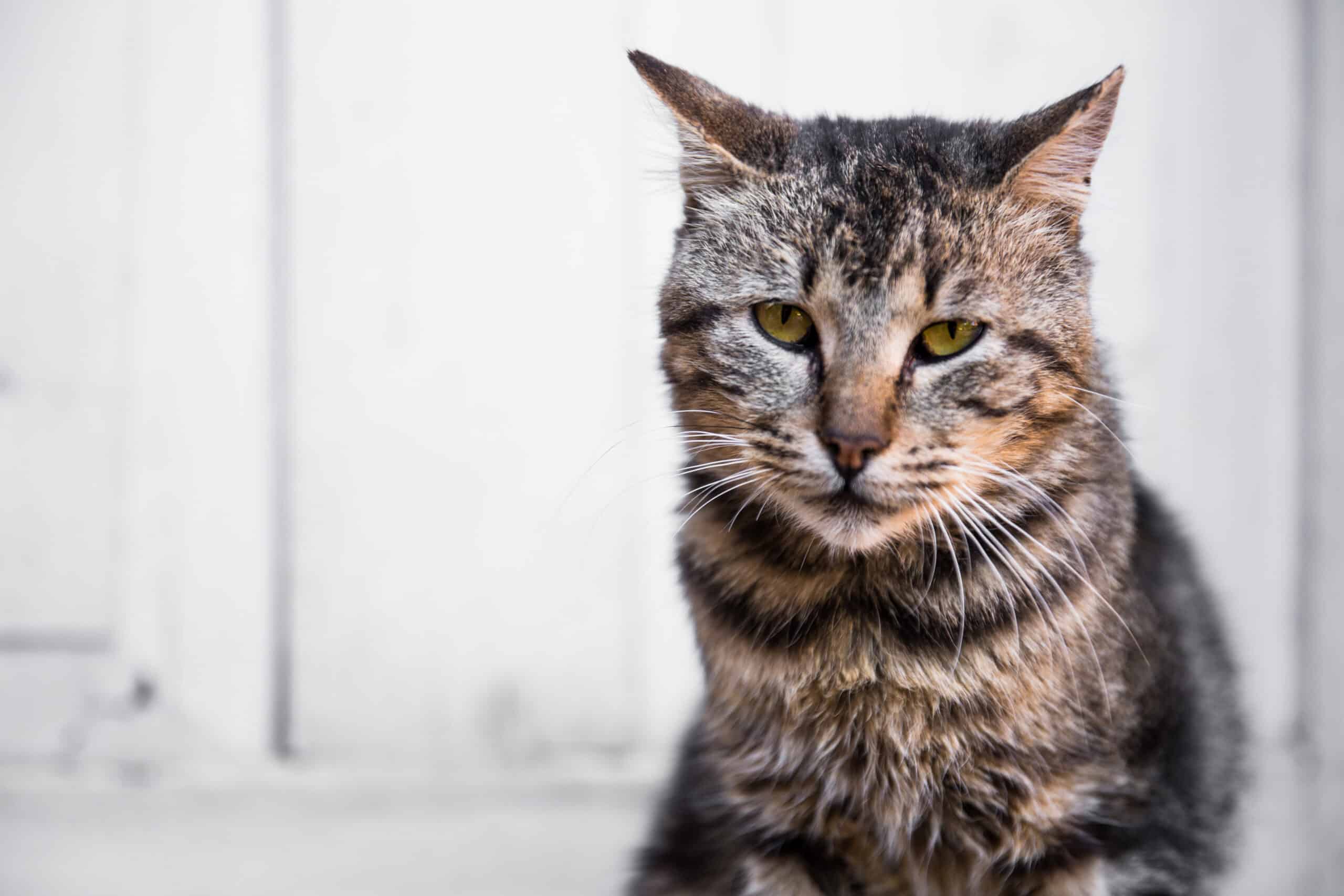
Healthcare for your Senior Cat
Just like us, your cat will feel and look its best with regular checkups and appropriate preventative care. Together, these are vitally important for maintaining your friend’s health into their senior years. Once a cat is considered a senior (10+ years old), it is best to have a physical exam and labwork twice a year. For young healthy cats, regular checkups and labwork help to establish a good “baseline.” This baseline can be used for comparison as your cat ages. Common issues such as kidney disease, diabetes, and hyperthyroidism can be detected even before you see symptoms, and early treatment helps your best friend remain happy and healthy for many years to come.
Annual dental cleanings started early in life help to prevent oral pain, infection, and even loss of teeth. There is mounting evidence that disease in the mouth contributes to other problems in the body. But annual dental cleanings are just one part of good oral hygiene. Imagine if you never brushed your teeth… what would your dentist have to say about that!? Brushing your kitty’s teeth daily with a pet safe toothpaste is recommended if they will allow it. Start brushing their teeth at a young age to establish a routine and pair this activity with a special treat or toy to establish a positive association.
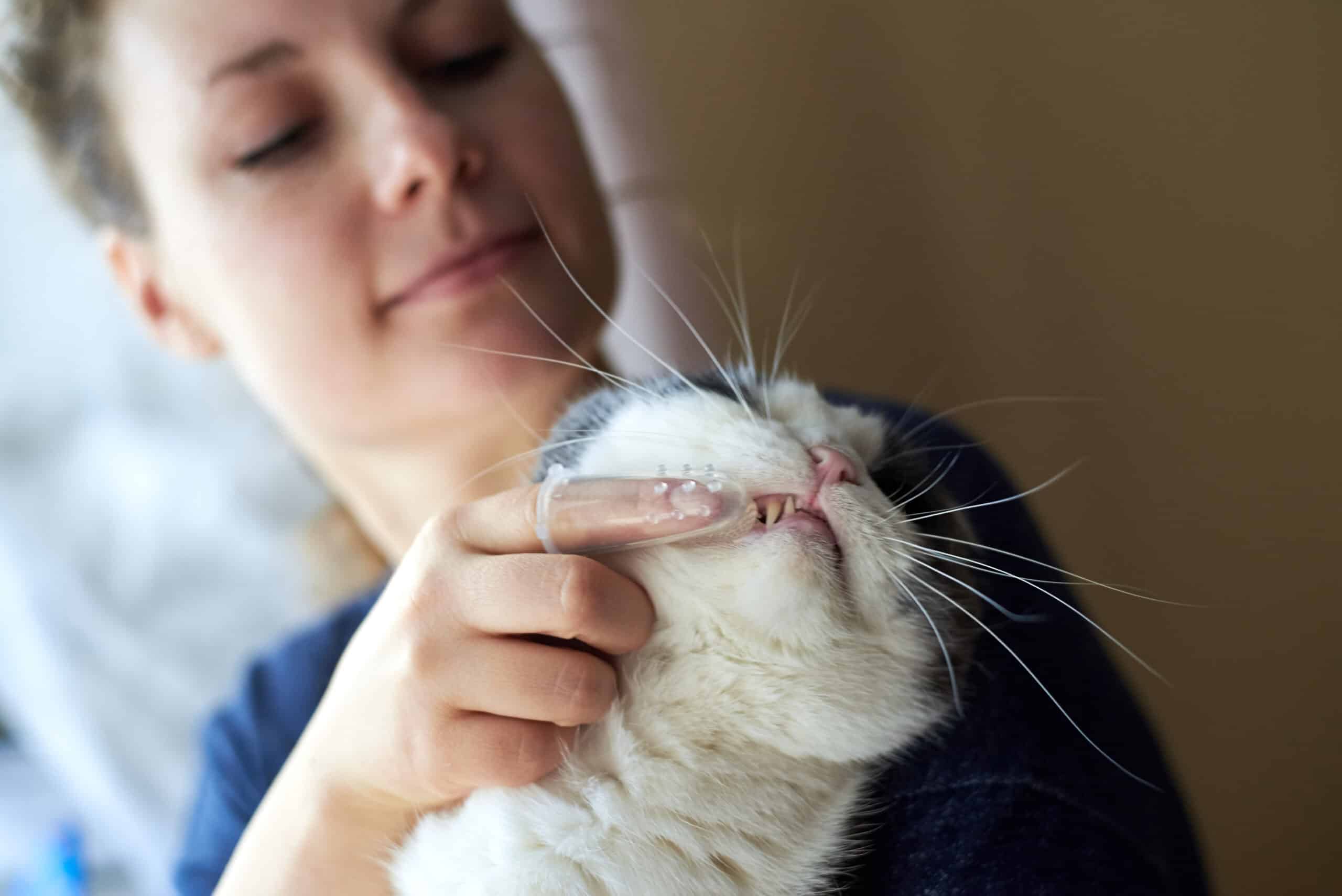
Hygiene for Your Senior Cat
Senior cats may groom themselves less thoroughly or less often than when they were younger. If this begins to happen, there are a few things you can do to help! Daily brushing will help to prevent matted fur. Frequent nail trimmings are also important. As your cat ages, nails often grow longer because they use them less. If your cat is not a big fan of brushing and nail trimming, start slow and don’t push it! Brush a small section of their body at a time and focus on trimming just one nail per session. And just like with tooth brushing, pairing grooming time with a special treat or toy can help your cat to make positive associations with this care. When it comes to litter boxes, consider your friend’s changing mobility. Many senior cats develop arthritis, and a box with low sides/walls that is on the floor will remain easy for them to use and help prevent accidents. Daily cleaning of the litter box and placement in a quiet, easy to access location will promote use as well. For a home with multiple cats, there should be “number of cats + 1” boxes available to prevent “turf wars.”
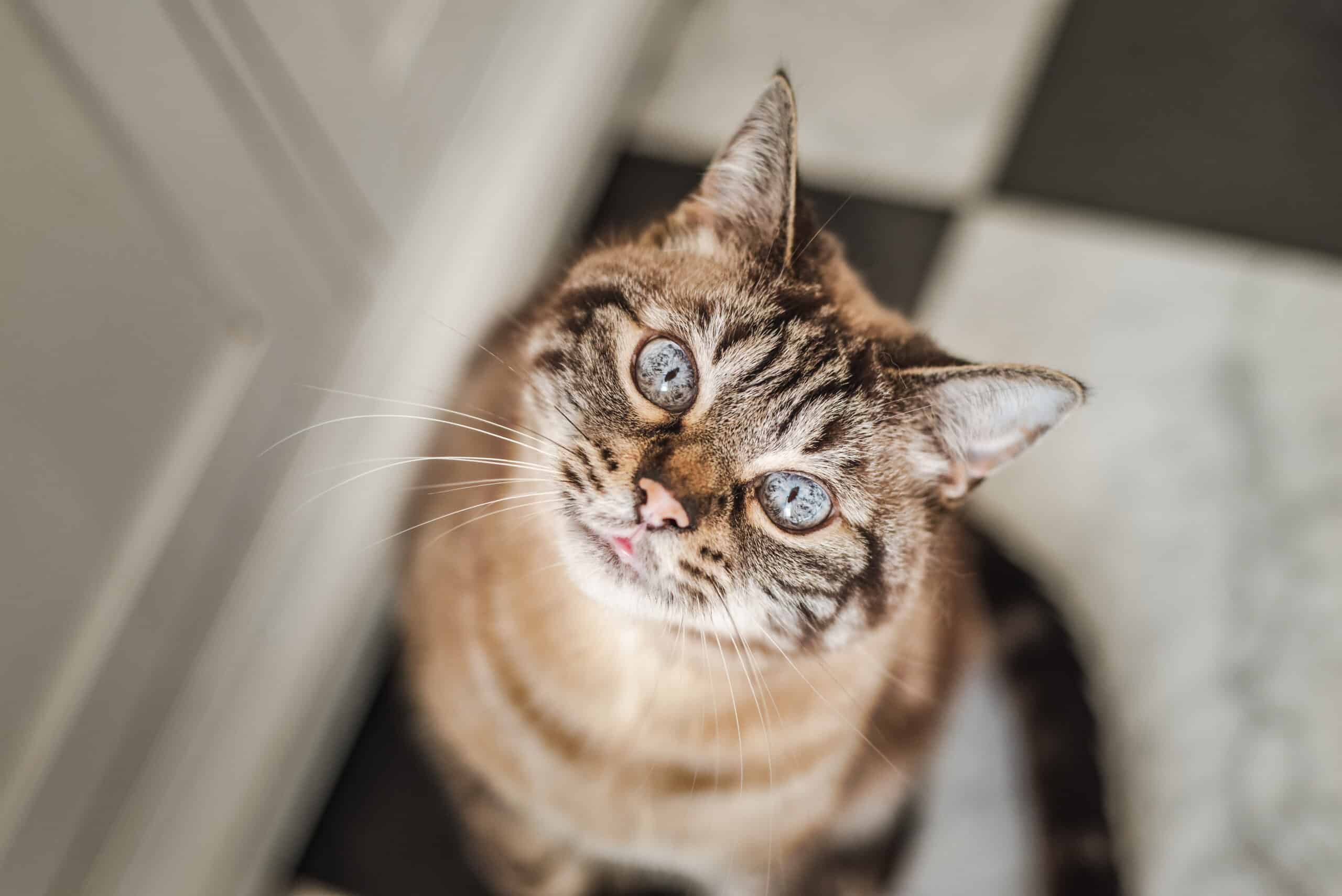
Environmental Enrichment for Your Senior Cat
Age related cognitive changes occur in cats just as they do with humans! Cats can show signs of disorientation or confusion, memory loss, and increased vocalization as they age. You can help to delay signs of senility by feeding an age appropriate diet. After all, “you are what you eat.” There are many pet foods specifically tailored to senior cats. These should be rich in ingredients that have been shown to help slow the signs of aging. Talk with your veterinarian about your cat’s dietary needs at every checkup. Keeping meal time stimulating is important too. Cats are natural hunters, so instead of feeding them from a bowl every time, consider adding food foraging puzzles to the routine. Dedicated daily play time will help keep your cat’s mind and body active. If your cat enjoys the outdoors, use a leash and harness to take them on short “walks” or just spend some supervised time in your yard or on a porch/patio. Unsupervised outdoor cats of any age are at increased risk of injury or even death, but this is especially risky for aging felines that are less capable of defending themselves.
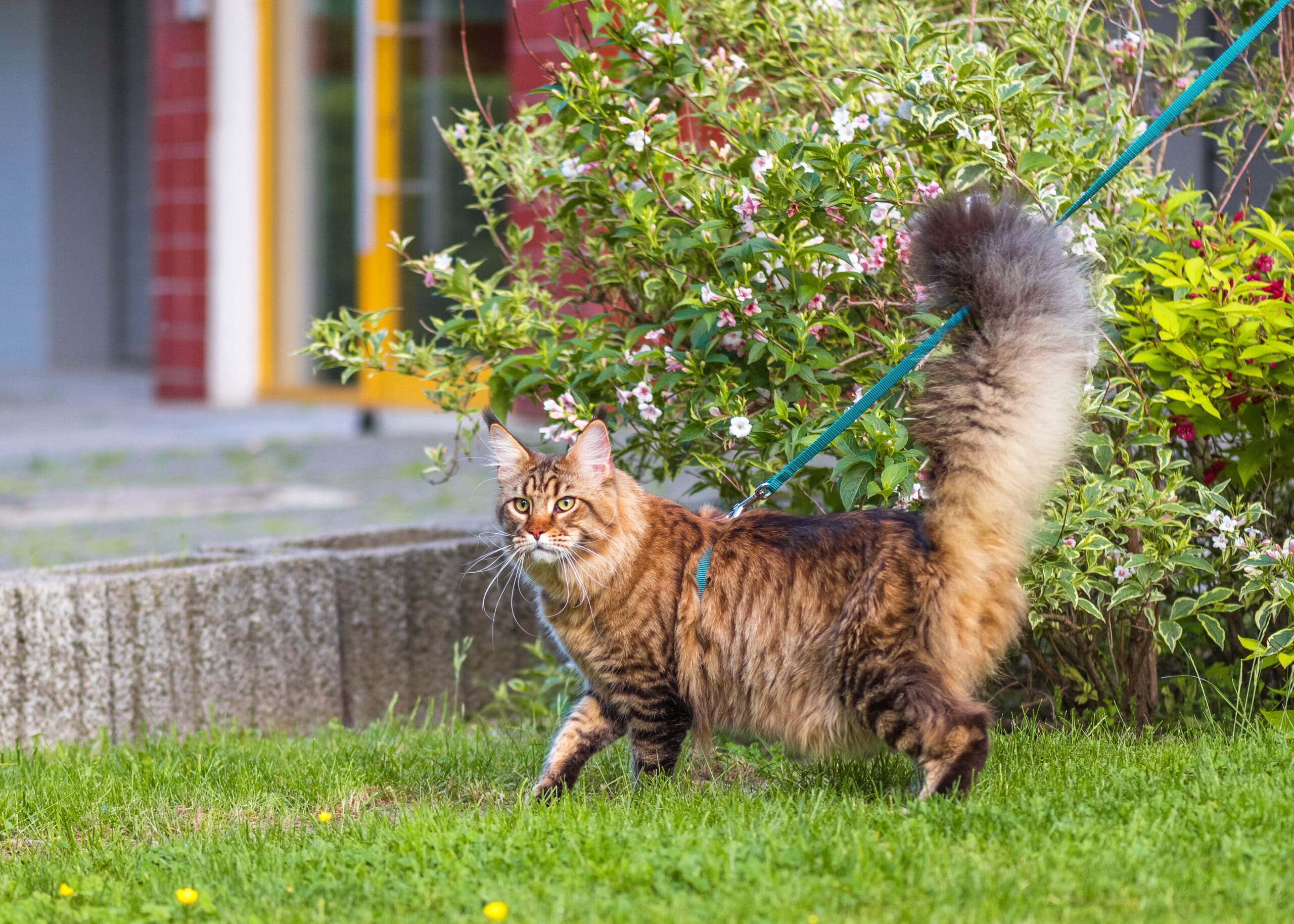
Food and Water for Your Senior Cat
Many cats do not consume enough water. Adding water to their food and offering both a water bowl and a pet water fountain will help to encourage drinking. Ideally, water is freshened frequently (at least twice daily), and bowls should be emptied and cleaned daily. Water fountains should be cleaned at least once a month, but they may need more frequent cleaning if serving multiple pets. The goal is to prevent unhealthy buildup of fur, food debris, and other contaminants that can clog the pump and reduce flow.
Many cats form a strong preference when it comes to the texture of their food. When they are younger, expose them to dry, canned, and semi-soft foods. This way, if they later develop a chronic illness that requires a specific type of diet, they are more likely to accept the necessary food even if it differs from their previous variety.
Just like litter boxes, keep food and water bowls in locations that are easy for your senior cat to access. If they must be kept on a counter top or elevated surface, make sure that your cat is able to reach these areas by having steps or ramps available.
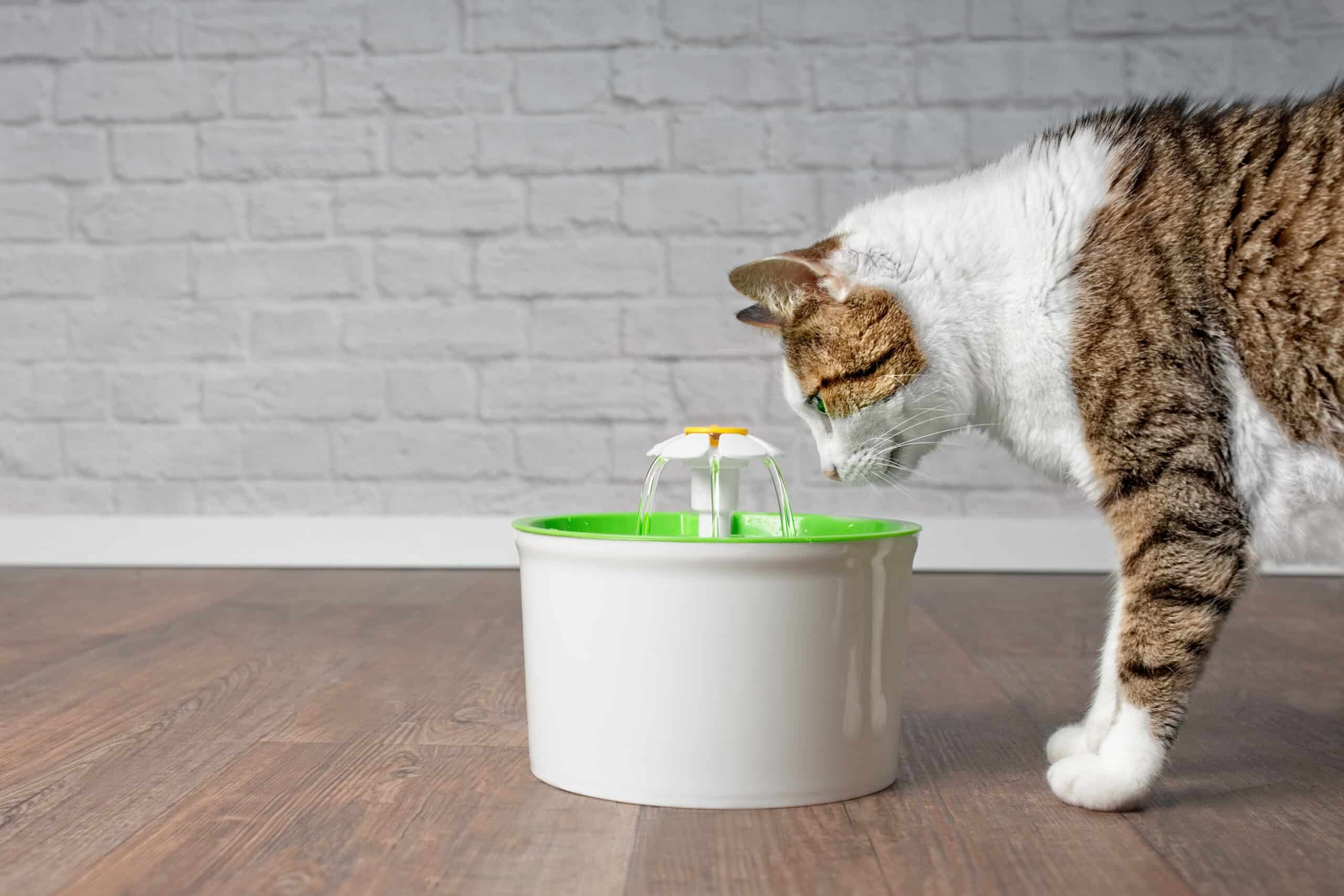
In summary, think of your senior cat in the same way you would an elderly friend or family member. As all creatures age, mobility and mental sharpness can decline, so special considerations are needed for your feline friend to enjoy the best that life has to offer them in their golden years.
If you would like additional support, consider scheduling a TeleAdvice Appointment with one of our professional veterinarians, or schedule an In-Home Hospice Assessment visit.
Written by: Dr. Britni Bently, Caring Pathways Veterinarian
Dr. Britni has always loved and cherished animals. She grew up in New Jersey where she participated in 4H, canine obedience and agility training, and raised a Seeing Eye Dog puppy. After moving to Birmingham, Alabama, she earned her BS in Biology from Birmingham Southern College and her Doctorate in Veterinary Medicine from Auburn University in 2011. She practiced small animal general medicine and surgery in the Birmingham metro area before moving to Colorado in January 2020. Dr. Britni was first introduced to Caring Pathways as a client, when the time had come to euthanize her senior dog shortly after moving to Colorado. She was so touched by the compassionate care her dog received that she felt a calling to pay it forward. Dr. Britni aspires to provide a peaceful and dignified passing for all animals in her care as well as a caring and informed experience to her clients.

